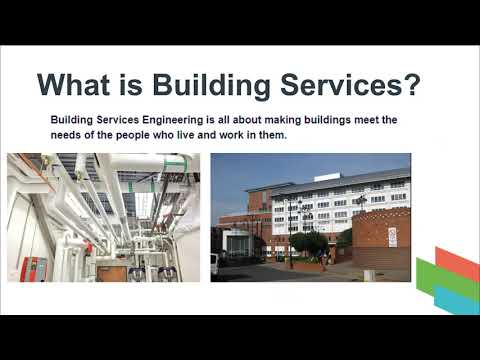Building Services Engineering Jobs: Description & Salary
Building Services Engineering Job Description
Building Services Engineering involves the design, installation, operation, and maintenance of the essential services and systems required in buildings, such as heating, ventilation, air conditioning, lighting, power, and plumbing. A Building Services Engineer is responsible for ensuring that these systems are efficient, reliable, and compliant with safety regulations. They work closely with architects, contractors, and other professionals to integrate these services into the building’s design and construction process.
As part of their job, Building Services Engineers conduct feasibility studies, develop technical specifications, and oversee the installation and commissioning of systems. They also carry out regular inspections, testing, and maintenance to ensure optimal performance and identify any issues that need to be addressed. In addition, they may need to provide technical support and advice to clients and stakeholders.
Building Services Engineering Salary
The salary for a Building Services Engineer can vary depending on factors such as experience, qualifications, location, and the size and complexity of the projects they work on. On average, a Building Services Engineer can expect to earn between $60,000 and $90,000 per year. However, those with extensive experience and specialized skills can earn higher salaries, potentially exceeding $100,000 annually.
Furthermore, the demand for Building Services Engineers is expected to grow in the coming years, as there is an increasing focus on sustainable and energy-efficient building design. This could lead to more job opportunities and potentially higher salaries in the field.

Building Services Engineering Job Description Template
Building Services Engineering Job Description
Building services engineering is a field that focuses on the design, installation, operation, and maintenance of various systems within buildings to ensure their functionality, safety, and efficiency. These systems include heating, ventilation, air conditioning (HVAC), plumbing, electrical, lighting, fire protection, and security.
Building services engineers are responsible for developing and implementing designs for these systems, ensuring they meet the requirements and standards of the building codes and regulations. They collaborate with architects, contractors, and other professionals to integrate these systems seamlessly into the building’s design.
One of the key responsibilities of building services engineers is to optimize the energy performance of buildings. They analyze energy usage and propose energy-efficient solutions to reduce consumption and lower carbon emissions. They also assess the environmental impact of buildings and recommend sustainable practices and technologies.
Another important aspect of the job is ensuring the safety and comfort of occupants. Building services engineers design and install fire protection systems, monitor air quality, control temperature and humidity levels, and maintain proper ventilation to create a healthy and comfortable indoor environment.
In addition to design and installation, building services engineers also play a crucial role in the operation and maintenance of building systems. They conduct regular inspections, troubleshoot problems, and carry out repairs and upgrades as needed. They also stay updated with the latest technologies and regulations in the field.
Overall, building services engineering is a multidisciplinary profession that requires technical expertise, problem-solving skills, and a strong understanding of building codes and regulations. Building services engineers are essential in ensuring that buildings are safe, efficient, and sustainable for their occupants.
Building Services Engineering Responsibilities
- Designing and planning of building services systems such as heating, ventilation, air conditioning, and electrical systems
- Collaborating with architects, contractors, and other professionals to ensure that building services systems meet the needs of the project
- Conducting feasibility studies and cost analysis for building services systems
- Preparing and reviewing technical specifications and drawings for building services systems
- Overseeing the installation, testing, and commissioning of building services systems
- Performing energy efficiency assessments and recommending sustainable design solutions
- Ensuring compliance with building codes, regulations, and health and safety standards
- Conducting inspections and audits to assess the performance and maintenance of building services systems
- Providing technical support and troubleshooting for building services systems
- Managing and coordinating subcontractors and suppliers involved in building services systems
- Keeping up-to-date with advancements in building services technology and industry best practices
Building Services Engineering Requirements
How Much Does A Building Services Engineering Make?
Building Services Engineering Salary
| Position | Experience Level | Salary |
|---|---|---|
| Junior Engineer | 0-2 years | $40,000 – $60,000 |
| Intermediate Engineer | 2-5 years | $60,000 – $80,000 |
| Senior Engineer | 5-10 years | $80,000 – $100,000 |
| Principal Engineer | 10+ years | $100,000+ |
Building Services Engineering is a field that focuses on the design, installation, operation, and maintenance of various systems in buildings, such as heating, ventilation, air conditioning, plumbing, and electrical systems. Professionals in this field play a crucial role in ensuring the functionality and efficiency of these systems.
The salary in Building Services Engineering varies based on factors such as position and experience level. Junior Engineers, with 0-2 years of experience, can expect to earn between $40,000 and $60,000 per year. Intermediate Engineers, with 2-5 years of experience, have a salary range of $60,000 – $80,000. Senior Engineers, with 5-10 years of experience, earn between $80,000 and $100,000. Principal Engineers, with 10 or more years of experience, have a salary of $100,000 or more.
It’s important to note that these salary ranges are approximate and can vary depending on factors such as location, company size, and individual qualifications. Additionally, professionals in this field may have opportunities for career growth and higher salaries as they gain more experience and expertise.
Building Services Engineering Salaries by Country
Top Paying Countries for Building Services Engineering
| Country | Average Salary (USD) |
|---|---|
| United States | $95,000 |
| Switzerland | $90,000 |
| Australia | $85,000 |
| United Kingdom | $80,000 |
| Canada | $75,000 |
Building Services Engineering is a highly sought-after profession worldwide, offering lucrative salaries to professionals in various countries. According to recent data, the United States ranks as the top paying country for building services engineering, with an average salary of $95,000 per year. Switzerland closely follows with an average salary of $90,000, while Australia, the United Kingdom, and Canada offer competitive salaries ranging from $75,000 to $85,000.
A video on the topic Building Services Engineering
Video Source : Leeds College of Building
Interview Questions for Building Services Engineering
1. What is Building Services Engineering?
Building Services Engineering refers to the design, installation, operation, and maintenance of the systems and equipment within a building that ensure a safe, comfortable, and efficient working environment. These systems include heating, ventilation, air conditioning, plumbing, electrical, lighting, fire protection, and security.
2. What are the key responsibilities of a Building Services Engineer?
A Building Services Engineer is responsible for designing, installing, and maintaining the various systems within a building. Their responsibilities include conducting feasibility studies, preparing design specifications, coordinating with architects and contractors, ensuring compliance with building regulations, overseeing the installation process, and conducting regular inspections and maintenance to ensure the systems are functioning properly.
3. What are the main considerations when designing building services systems?
When designing building services systems, several factors need to be considered. These include the building’s purpose and occupancy, energy efficiency, sustainability, safety regulations, budget constraints, and the integration of various systems to ensure they work together efficiently.
4. How does Building Services Engineering contribute to energy efficiency in buildings?
Building Services Engineering plays a crucial role in enhancing energy efficiency in buildings. This is achieved through the design and installation of energy-efficient systems such as HVAC systems with high-efficiency equipment, smart lighting systems, and the implementation of renewable energy sources. Building Services Engineers also conduct energy audits and recommend energy-saving measures to reduce overall energy consumption.
5. What are the current trends in Building Services Engineering?
Some current trends in Building Services Engineering include the integration of smart building technologies, the use of Building Information Modeling (BIM) for design and coordination, the implementation of sustainable and renewable energy systems, the focus on indoor air quality and ventilation, and the adoption of energy-efficient lighting systems such as LED.
6. How do Building Services Engineers ensure compliance with building regulations?
Building Services Engineers ensure compliance with building regulations by staying up-to-date with the latest codes and standards. They incorporate these regulations into their designs, conduct regular inspections during construction to ensure adherence, and verify that the installed systems meet the required standards through testing and commissioning processes.
7. What skills are necessary for a career in Building Services Engineering?
Skills necessary for a career in Building Services Engineering include strong technical and analytical skills, knowledge of building codes and regulations, proficiency in computer-aided design (CAD) software, project management skills, effective communication and teamwork skills, and the ability to adapt to new technologies and industry trends.
8. What are the challenges faced by Building Services Engineers?
Some challenges faced by Building Services Engineers include the need to balance energy efficiency with cost-effectiveness, the integration of new technologies into existing buildings, managing complex projects with tight deadlines, ensuring compliance with changing regulations, and addressing the increasing demand for sustainable and environmentally friendly building systems.
9. How does Building Services Engineering contribute to occupant comfort?
Building Services Engineering plays a vital role in ensuring occupant comfort by providing appropriate heating, cooling, and ventilation systems. These systems control the indoor temperature, humidity, and air quality, creating a comfortable and healthy environment for occupants. Additionally, lighting design and acoustics also contribute to occupant comfort, which are aspects considered by Building Services Engineers.
10. How can Building Services Engineering contribute to sustainable building design?
Building Services Engineering can contribute to sustainable building design by incorporating energy-efficient systems, renewable energy sources, and water-saving measures into the building’s design. This can include the use of solar panels, rainwater harvesting systems, efficient HVAC systems, LED lighting, and the implementation of smart building technologies for energy management and optimization.
The Best Universities For The Building Services Engineering Profession.
- University College London (UCL)
- Imperial College London
- University of Cambridge
- University of Southampton
- University of Strathclyde
- University of Bath
- Loughborough University
- University of Leeds
- University of Sheffield
- University of Manchester






